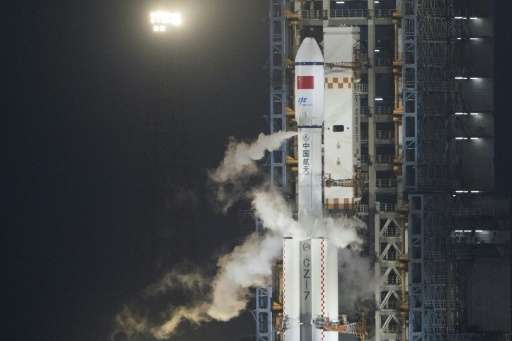
Breaking News
 Is The Government Coming For Our Seeds?
Is The Government Coming For Our Seeds?
 Looming ice storm could be among worst on record
Looming ice storm could be among worst on record
 The walls are actually closing in on Ilhan Omar and her husband…
The walls are actually closing in on Ilhan Omar and her husband…
 Tesla and XAI's Digital Agent Strategy
Tesla and XAI's Digital Agent Strategy
Top Tech News
 The day of the tactical laser weapon arrives
The day of the tactical laser weapon arrives
 'ELITE': The Palantir App ICE Uses to Find Neighborhoods to Raid
'ELITE': The Palantir App ICE Uses to Find Neighborhoods to Raid
 Solar Just Took a Huge Leap Forward!- CallSun 215 Anti Shade Panel
Solar Just Took a Huge Leap Forward!- CallSun 215 Anti Shade Panel
 XAI Grok 4.20 and OpenAI GPT 5.2 Are Solving Significant Previously Unsolved Math Proofs
XAI Grok 4.20 and OpenAI GPT 5.2 Are Solving Significant Previously Unsolved Math Proofs
 Watch: World's fastest drone hits 408 mph to reclaim speed record
Watch: World's fastest drone hits 408 mph to reclaim speed record
 Ukrainian robot soldier holds off Russian forces by itself in six-week battle
Ukrainian robot soldier holds off Russian forces by itself in six-week battle
 NASA announces strongest evidence yet for ancient life on Mars
NASA announces strongest evidence yet for ancient life on Mars
 Caltech has successfully demonstrated wireless energy transfer...
Caltech has successfully demonstrated wireless energy transfer...
 The TZLA Plasma Files: The Secret Health Sovereignty Tech That Uncle Trump And The CIA Tried To Bury
The TZLA Plasma Files: The Secret Health Sovereignty Tech That Uncle Trump And The CIA Tried To Bury
China tests 'Lunar Palace' as it eyes moon mission

Four postgraduate students from the capital's astronautics research university Beihang entered the 160-square-metre (1,720-square-foot) cabin—dubbed the "Yuegong-1", or "Lunar Palace"—on Wednesday, the official Xinhua news agency reported.
The volunteers will live in the sealed lab to simulate a long-term, self-contained space mission with no input from the outside world, Xinhua said.
Human waste will be treated with a bio-fermentation process, and experimental crops and vegetables grown with the help of food and waste byproducts.
The cabin represents the "world's most advanced closed-loop life-support technology so far", state broadcaster CCTV said.
China does not expect to land its first astronauts on the moon for at least another decade, but the project seeks to help the country prepare lunar explorers for longer stays on the surface.
Two men and two women entered the lab on Wednesday for an initial stay of 60 days. They will then be relieved by another group of four, who will stay 200 days, before returning for an additional 105.

 Nano Nuclear Enters The Asian Market
Nano Nuclear Enters The Asian Market


